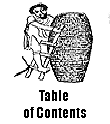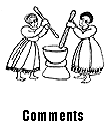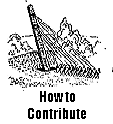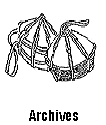
|
|
|
 David’s Story Yeshi Medhin Sound of gravel crunching under tires. welajoch coming to take away my playmates. asir se’at qurs is over. I squat by a pile of dust in the courtyard, making idle markings with a long stick, pretending not to notice while they leave me - one by one. And no matter how long I wait, no matter how hard I looked, mine never came. I go back to the house, dragging the stick behind me, clinging to a childish hope that my mother will follow the track and finally find me here. The love of a parent for a child is that one form of love you should never have to work hard to earn. It should be a given — your first birthday gift, something that no one nor nothing can take away. It sounds basic enough, doesn’t it? The assumption here is that the child was wanted, or that the parent is fit. Parenting is perhaps the only crucial occupations in society for which you don’t need a license. You have to get a license to fish, but you don’t have to get a license to parent. License to drive? Absolutely. To raise a child? Uh…nope. License to own a gun? Yeah, you need one. To conceive a child? No. You get my point. This is the story of one boy born to a mother who did not keep him, raised by a succession of relatives including, for a period, a father who did not want to or couldn't keep him, and later killed by a disease he contracted probably while searching for that most illusive of things — love, given and returned. This is the story of one...it is the life of many. His given name was Dawit, but because his mother was ferenj everyone called him David. Despite the initial love and care, David grew up knowing that he was not like other children who got to go home to their parents from their grandmother’s at the end of the day. His mother would never sweep in one day and take him to her bosom and tell him he was loved. She would never come in bearing smiles and presents and tickle him on the lush grass in the front yard. At the end of the day, he was kissed goodnight by his aging grandmother who tried to love him enough for three, but couldn’t quite succeed. After the revolution came and went, he was denied even that small comfort. He was sent to France, where one of his relatives had ended up after escaping the hungry clutches of neCH shibir. By the time he was a teen, he was too much to handle, so he was sent to another relative in Kenya, which is where we met again. It was clear then, even to me who didn’t notice these things swiftly, that he was not a full-blooded Ethiopian. He would tell me later, years later, about his mother…and other things. I’m out in the backyard — Kenya. I found a baby bird, broken wing. It fluttered desperately as I caught it up and held it in my cupped hands. I brought my hands together until there was only a tiny hole left and I stood there, one eye focused on the opening…waiting. My little cousin came up and she wanted to know what I had in my hands. Bird, I told her. What are you doing with the bird? She asked. I’m waiting, I told her. For what? She persisted. I want to see, I told her. See what? She wanted to know. I want to see, I said slowly, my eyes still glued to that spot, nefsua siweTa. David didn’t fare quite so well in Kenya. He was loved, but his relatives didn’t know quite how to handle him. And in their defense, David was quite the handful. A mediocre student and a school yard scrapper, he wasn’t exactly the ideal child to care for, especially when he wasn’t yours to begin with. Although all he had ever sought was unconditional love, he made it hard for you to love him. I guess it was his way of making you love him despite it all…just like you would your own. One day, he was caught roughing-up a child, and before we knew it, off went David to a new home. Everybody was happy at the picnic. Lucky bastards. They all look so…so…unencumbered. I had known…I don’t know for how long, but I had known, long enough now to be certain. The realization of the truth was easier than having to speak it out loud. I wanted to proclaim myself and claim my identity — well a part of it. For so long now, I had been the white elephant in the family. But now, I wanted to shine. I wanted to be the peacock for a change. I wanted to let my feathers out and allow all my colors to glow. I am beautiful, I wanted to tell the world. Look at me. Despite it all, despite how you see me, despite how you don’t see me, I am worthy of your attention. I am worthy of your admiration. I am worthy of your love…dammit. When we met again, it was the 80s. Prince was in; the BeeGees were out; Michael Jackson had just declared himself the King of Pop; and David…well, David became the first person to ever come out to me. He was a tall, handsome young man who had trudged though life and come out the other end embracing an alternative lifestyle. I was shocked…well, surprised, mostly. I was not sure, exactly, what it meant, being gay, but it didn’t affect the way I saw David, so I thought no more of it. But David began to change before my very eyes. He mortified us all by flaunting his sexuality for all and sundry to see. He was flamboyant with it, and seemed to turn effeminate almost overnight. He became a hairdresser and took up with one as his lover. I saw him here and there — at a i>leqso once, then at a wedding, then again at a party — and every time I saw him, he had taken a step further into that alternative world, where I assumed he was getting love, finally, despite who and what he was. None of us were happy with his choice. People twittered about him…as usual…but this time, it wasn’t about who his mother was, but about who his lover was. People looked at him only when he wasn’t looking at them, and they sucked their teeth in ill disguised disgust and felt sorry for his parents. But I knew better. It had been percolating in my head for a so long it was like a mantra by the time I decided to do something about it. So I wrote the agency. They wrote back and sent me forms to fill out. I filled out the forms and sent them back. And waited. I expected that they’d forward her address to me and that I’d contact her, write to her about me, tell her about all the things that she had missed in my life, tell her that I forgive her…that I understand, even. I waited...my whole heart filled with certainty and love. But she wrote me, instead. Can you believe that? She wrote to me. I tore open the envelope, hands shaking. Didn’t know what to expect. Oh, I was so sure she’d been wanting to find me for as long as I’d been wanting to be found. Finally. The moment of truth. Do you know what it said? Do you know what my mother said to me? Do you know what she wanted me to know? David had told me once, about his search for his real mother. When he was of age, he had this service locate her. And they did. But instead of giving him what he had expected all this time — a mother hungry for the sight of her firstborn child; a mother who would fold him to her bosom and cry tears of joy; a mother who would lave him with that one most precious gift of all, love — he had gotten a letter. He told me the gist of it: Don’t try to find me again. I am married. I have my own family. I don’t want to meet you. I’m sure there was more (I hope there was more, softer, gentler language, full of regret and explanations), but that was all he chose to repeat. I suppose it was better to know - don’t you think? - than to spend your life wondering. So, refusing to let this final straw break his spirit, David sought his solace in a new "family," one that took him in and gave him what he needed. I began to see him less and less often. And after his final move, I didn’t see him at all. Back then, AIDS was still called GRID (Gay Related Immune-Deficiency), and no one you knew had it, let alone died from it. I hadn’t even known he was ill by the time I heard he was dead. It was a family secret. And, forgive me, but I think there were many sighs of relief when he died. No more embarrassments to be hidden when a man appears with his hair slicked back, looking too thin and quite unmanly, crossing his legs at the knees and letting his hands hang loosely at the wrists. It was the most public family secret. Everybody knew. Of course I’d heard of it. ( Of course. Of course!) And like everyone else, I didn’t think it would happen to me. It couldn’t happen to me. Not me. Not me! I’m too young. I’m too strong. I can beat anything. So, confident in my invincibility, I reveled in my new-found life. Freedom. I absolutely drank in life like a man too long parched by the bereha Sehai. Then it happened. So quickly yet so painfully slow. I watched my invincibility diminish to a beaten, shrunken, bedridden body in a hospital. My family was there, more or less. Many came to mourn. Some, I know, came just to gawk at me, to see what my kind of death really looked like. They couldn’t hold my gaze anymore than I could hold theirs. Delirium became my friend for by the time it claimed me, by the time it swallowed me whole, there was no one who would hold me — even to watch to see nefsE siweTa. But he is remembered. Fondly, with that little bit that hurts for the boy he must have been, for the man he became, and the victim he ended up being. Some years later, when they unfolded the first AIDS Quilt, I made sure David’s name was there, boldly stitched on in red, to help me keep a tiny bit of him here, in this mortal world. [This, too, is for you, D! Much love. See you when I see you!] |

|

|

|

|

|
| © Copyright SELEDA Ethiopia, December 2001. All Rights Reserved. |